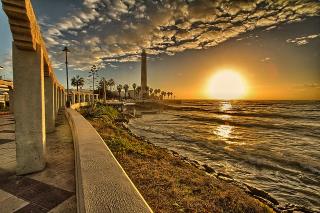
In October 2015, Spain’s Council of Ministers approved a controversial tax on those using electricity produced by their own solar installations. However, a new government says solar panel owners could soon see the back of the so called sun tax.
What is the sun tax?
This legislation causes those with self-consumptive photovoltaic systems to pay the same grid fees as those without solar panels. This covers the power contracted from an electricity company. But they also have to pay a second “sun tax” which means solar panel owners pay for the electricity they generate and use from their PV systems, even though it doesn’t come into contact with the grid.
There are other facets of the legislation which also caused more outrage. Photovoltaic systems up to 100 kW are not able to sell any excess electricity they produce. Instead, they must “donate” the extra to the grid free of charge. Systems over 100 kW must register if they wish to sell the extra electricity. Community ownership of PV systems, of all sizes, under this legislation is prohibited. Not only this, but the legislation is retroactive; meaning installations prior to the introduction of the tax must comply. If the conditions are not met, then the PV system owners are subject to a penalty fee of up to €60 million ($64 million). To put this in perspective, this is twice the penalty of a radioactive leak from a nuclear plant. Unsurprisingly, this caused outrage.
Exceptions to the tax
There are some circumstances where the tax does not apply. Fear not off-gridders, this tax is only for those connected to the grid. If you run an off-grid system then no grid tax needs to be paid at all. Installations smaller than 10 kW are also exempt from paying the second sun tax. The Canary Islands and the cities of Ceuta and Melilla (Spanish territories in Africa) are also exempt from the second tax. Mallorca and Menorca pay the second sun tax at a reduced rate.
The Spanish government defended the legislation by saying the fees contribute to overall grid system costs. However, the Spanish Photovoltaic Union (UNEF) pointed out how uneconomic the new law was. Their spokesperson stated, “Each kWh imported from the grid by a self-consumer will pay double the tolls compared to a kWh imported from the gird by another consumer.”
Change on the horizon
The current legislation is an unnecessary burden placed upon solar consumers who want to be more economical and environmentally friendly. This has been recognized by opposing political parties and other unions and consumers. The political party which initially brought in the sun tax is now a minority. Therefore, there is now the opportunity for all opposing parties to remove this expensive and impractical legislation.
In January 2017 a law proposal was registered in congress, beginning the process of the sun tax removal. The urgent changes to the legislation listed in the document include the right to self-consumption of solar energy without charge. Along with this, several consumers should be able to pool their resources to share a self-consumption facility to help tackle poverty. Plus, the proposal also adapts the sanctioning regime to avoid the multi-million euro fines, becoming more realistic. Finally, the importance of renewable energy as an appropriate instrument to help reduce environmental impact of electricity production has been recognised. Alongside, the role it can play in strengthening energy independence for Spain. The President of the UNEF, Jorge Barredo, said of the proposal, “it is a very important step in defining a different and more favourable regulatory framework for self-consumption.”
The law proposal has outlined a period of 3 months for the legislation to come into action.
4 Responses
I live in Cadiz province, Spain.
I propose to install an electricity generation system. It will consist of PV cells and a backup generator.
I will not be connected to the grid. Do I need and permission from the Spanish authorities?
At last someone is doing something about this unfair practice.
been looking at cave homes in spain which can not get power from the grid, if the tax does not get scraped will have to use a generator which i did not want to do
“Sun Tax Axed”, sounds good, but what is the actual situation? I think the past tense may be premature.